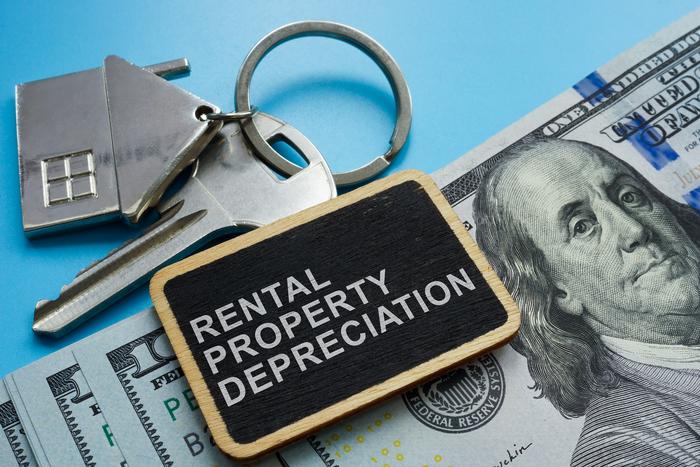Introduction
Owning a rental property can be a lucrative investment, but it also comes with various financial responsibilities. One of the essential aspects of managing rental properties is understanding how to handle depreciation. Depreciation allows you to deduct the cost of wear and tear on your property over time, reducing your taxable income and increasing your potential for long-term financial gains. In this comprehensive guide, we will explore the concept of depreciation, its significance for rental property owners, and provide practical strategies to handle depreciation effectively.
Section 1: Understanding Depreciation
a. Definition and Basics of Depreciation
Depreciation is the process of allocating the cost of an asset over its useful life. This accounting practice recognizes that assets, including rental properties, gradually lose value due to wear and tear, aging, and obsolescence. By spreading the cost of an asset over its estimated useful life, you can deduct a portion of its value as an expense each year.
b. Why Depreciation Matters for Rental Property Owners
Depreciation is a critical aspect of managing rental properties because it reduces taxable income and increases cash flow. It allows property owners to recoup the cost of acquiring the property, making necessary improvements, and helps account for the inevitable decline in the property's value over time.
Section 2: Depreciation Methods
a. Straight-Line Depreciation
Straight-line depreciation is the most common method used to depreciate rental properties. It evenly allocates the cost of the property over its useful life. This method provides consistent deductions each year, making it straightforward to calculate and plan for tax purposes.
b. Accelerated Depreciation
Accelerated depreciation methods, such as the Modified Accelerated Cost Recovery System (MACRS), allow property owners to deduct a larger portion of the property's value in the early years of ownership. This method recognizes that assets often depreciate more rapidly in the early stages of their useful life. By front-loading deductions, property owners can maximize their tax benefits in the earlier years.
c. Section 179 Deduction
The Section 179 deduction is another method that allows property owners to deduct the full cost of qualifying property in the year it is placed in service. This deduction is particularly beneficial for smaller rental property owners as it provides immediate tax savings and reduces the administrative burden of tracking depreciation over multiple years.
Section 3: Determining the Useful Life of Your Rental Property
a. Factors Affecting Useful Life
Several factors influence the useful life of a rental property, including the property type, location, quality of construction, and maintenance practices. Understanding these factors is crucial when determining the appropriate useful life to use for depreciation calculations.
b. Common Useful Life Periods for Rental Properties
The IRS provides guidelines for determining the useful life of various rental property components. For example, residential rental properties generally have a useful life of 27.5 years, while commercial properties have a useful life of 39 years. Understanding these guidelines ensures accurate depreciation calculations and compliance with tax regulations.
Section 4: Calculating Depreciation
a. Cost Basis and Adjusted Basis
To calculate depreciation, you need to determine the cost basis of your rental property, which includes the purchase price and other acquisition costs. Adjusted basis accounts for any improvements, deductions, or credits applied to the property. These figures serve as the foundation for depreciation calculations.
b. Formulas and Examples for Calculating Depreciation
Depreciation can be calculated using specific formulas based on the depreciation method chosen. The guide provides step-by-step examples and explanations of how to calculate depreciation for rental properties using both straight-line and accelerated depreciation methods.
Section 5: Claiming Depreciation Deductions
a. Reporting Depreciation on Tax Returns
When filing your tax returns, it's important to accurately report depreciation deductions. The guide outlines the relevant tax forms and provides instructions on how to report depreciation for rental properties.
b. IRS Guidelines and Compliance
The IRS has specific guidelines and regulations regarding depreciation deductions for rental properties. Understanding these rules ensures compliance and avoids potential penalties or audits. The guide highlights key IRS guidelines and best practices to follow when claiming depreciation deductions.
Section 6: Strategies to Maximize Depreciation Benefits
a. Property Improvements and Capital Expenses
Making improvements to your rental property can increase its value and extend its useful life. Understanding the difference between repairs and capital expenses allows you to properly categorize expenses and take advantage of depreciation benefits.
b. Cost Segregation Study
A cost segregation study is a professional analysis that identifies and reclassifies components of a property to accelerate depreciation deductions. This strategy is particularly valuable for commercial properties with shorter recovery periods for certain components, resulting in increased tax savings.
c. Utilizing Bonus Depreciation
Bonus depreciation is an additional deduction that allows property owners to write off a significant percentage of the property's value in the year it is placed in service. Understanding the eligibility criteria and limitations of bonus depreciation can help rental property owners maximize their tax benefits.
Section 7: Limitations and Recapture of Depreciation
While depreciation provides valuable tax benefits, there are limitations and potential recapture rules that rental property owners must be aware of. Understanding these limitations and recapture provisions ensures accurate tax planning and avoids unexpected tax liabilities in the future.
Section 8: Handling Depreciation for Different Types of Rental Properties
a. Residential Rental Properties
Depreciation for residential rental properties follows specific rules and guidelines. This section delves into the unique considerations and strategies for handling depreciation in the residential rental property sector. It covers topics such as the treatment of land, rental periods, and how to handle depreciation for multi-unit properties.
b. Commercial Rental Properties
Commercial rental properties have their own set of rules and considerations when it comes to depreciation. This section explores the depreciation guidelines for commercial properties, including the depreciation of building improvements, leasehold improvements, and the impact of tenant improvements.
c. Vacation Rental Properties
Vacation rental properties present their own set of challenges when it comes to depreciation. This section discusses the factors to consider when determining the useful life of a vacation rental property, the treatment of personal use days, and strategies for maximizing depreciation deductions.
Section 9: Tax Planning and Professional Guidance
Tax planning plays a crucial role in effectively handling depreciation on rental properties. This section provides insights into year-end tax planning strategies, the importance of maintaining accurate records, and the benefits of seeking professional guidance from accountants or tax advisors specialized in real estate taxation.
Section 10: Conclusion
In conclusion, understanding how to handle depreciation is a fundamental aspect of successful rental property ownership. By comprehending the basics of depreciation, choosing the appropriate depreciation method, accurately calculating depreciation deductions, and staying updated with tax regulations, rental property owners can maximize their tax benefits, improve cash flow, and make informed financial decisions.
Managing depreciation requires careful planning, record-keeping, and compliance with IRS guidelines. It is crucial to evaluate the specific characteristics of your rental property and seek professional advice when needed to ensure accurate depreciation calculations and maximize tax benefits. With proper knowledge and strategic implementation, depreciation can become a valuable tool in your overall rental property investment strategy.
By leveraging the benefits of depreciation, rental property owners can optimize their financial returns, reduce tax liabilities, and create a solid foundation for long-term investment success.




















